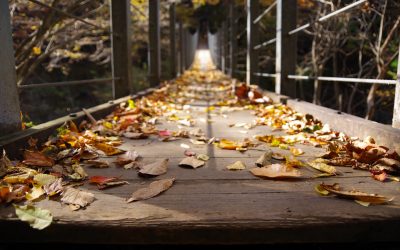Most of the millions, or is it billions, of living things God made are tiny, beyond detection by the unaided human eye. Countless essential organisms live in every teaspoon of soil. Most of God’s visible creatures are also, like Bethlehem’s Christ himself, small and weak, or like us people of God, despised or ignored, relegated to the categories of weeds and bugs, pests to be eliminated, rebels to be put down, problems to be solved, heretics to be vilified.
What is this godly obsession with little things, poor and despised? Is it possible that it is to just such things, most of which don’t make the pages of the Bible, that God has committed the ongoing creation, and the undergirding health of all that he has made?
This little moth, Problepsis sancta, which graces our verandah in summer, is easily missed. Yet it is lovely with the exquisite embroidery of the fingers of God.  I love it that some scientist somewhere gave it the species name “sancta”, which hints at holiness, the touch of the Holy One. I need to look for his handiwork and to know, in my worst days, that the One who is separate, set aside from us, is paradoxically in Christ, also here, on my verandah, sitting on my window, looking in. Would that the whole creation be called holy, as we live in his space, on his holy ground, good Queenslanders all, without shoes.
I love it that some scientist somewhere gave it the species name “sancta”, which hints at holiness, the touch of the Holy One. I need to look for his handiwork and to know, in my worst days, that the One who is separate, set aside from us, is paradoxically in Christ, also here, on my verandah, sitting on my window, looking in. Would that the whole creation be called holy, as we live in his space, on his holy ground, good Queenslanders all, without shoes.
Our friend Margaret ended her most recent handwritten note with a short-handed blessing: Happiness in all the small lovely things.
In her 80s now, still leading literature classes among retired professors and clergy and university graduates at the University of the Third Age, and reminding her nephew “about necessary things to attend to when I die,” Margaret lives alone but not alone by the sustaining nourishment of the voice of God in small lovely things: the flower on the back landing, the possum that peers through the screen, the early morning light infusing the waking world, the magic of Mary Oliver’s poetry, images woven out of simple words. From these she gleans wisdom and life from God.
Doing anything worthwhile can be a thankless, draining activity, soul-destroying, life-squeezing, drowning the encouraging voice of the God of Lost Causes, the One who raises the dead. It is a mistake to reduce your one life to the enslaving good cause for which you struggle. You too are sancta, holy things, sacred ones, in Christ Jesus. You too already live a nourished and nourishing life, healed and healing.
Two nights in a row, there came to our verandah one of the world’s largest moths, an Emperor Gum Moth. We laughed as the hopeful little gecko circled the Emperor on the window, wondering how in the world to grab a supper so big! The Emperor assumed her usual grumpy-face, annoyed at the name given her, since half of those “Emperors” are female. Females with a male title, like the female shepherds among you already engaged unseen in the grace-work of the true Emperor, the One on the cross. Never mind that you are not called Pastor. Your name is Sancta. Look at the picture below, put on your smiley face – and laugh!

And we are God’s poiema, St Paul says, in Ephesians 2:10. Take your pick of the translations of that lovely Greek word poiema: workmanship, handiwork, poetry. We are God’s embroidered ones. We are the sacred images created “in Christ Jesus” from all the gifted words of the gifted Word, created “to do good works, which God prepared in advance for us to do.” Created to be and to do.
We are and we do, following his call, and in the company of all the tiny, faithful, beautiful, called witnesses who surround us, encouraging, speaking out of their faithfulness, inviting us all to set aside the cause this little while, and to cherish and cultivate in stillness what is revealed in them: there is One who is God, whose every intention towards us is Love. Happiness to you in all the small lovely things!
And all will be well,
and all will be well,
all manner of thing will be well.
(Mother Julian of Norwich)




